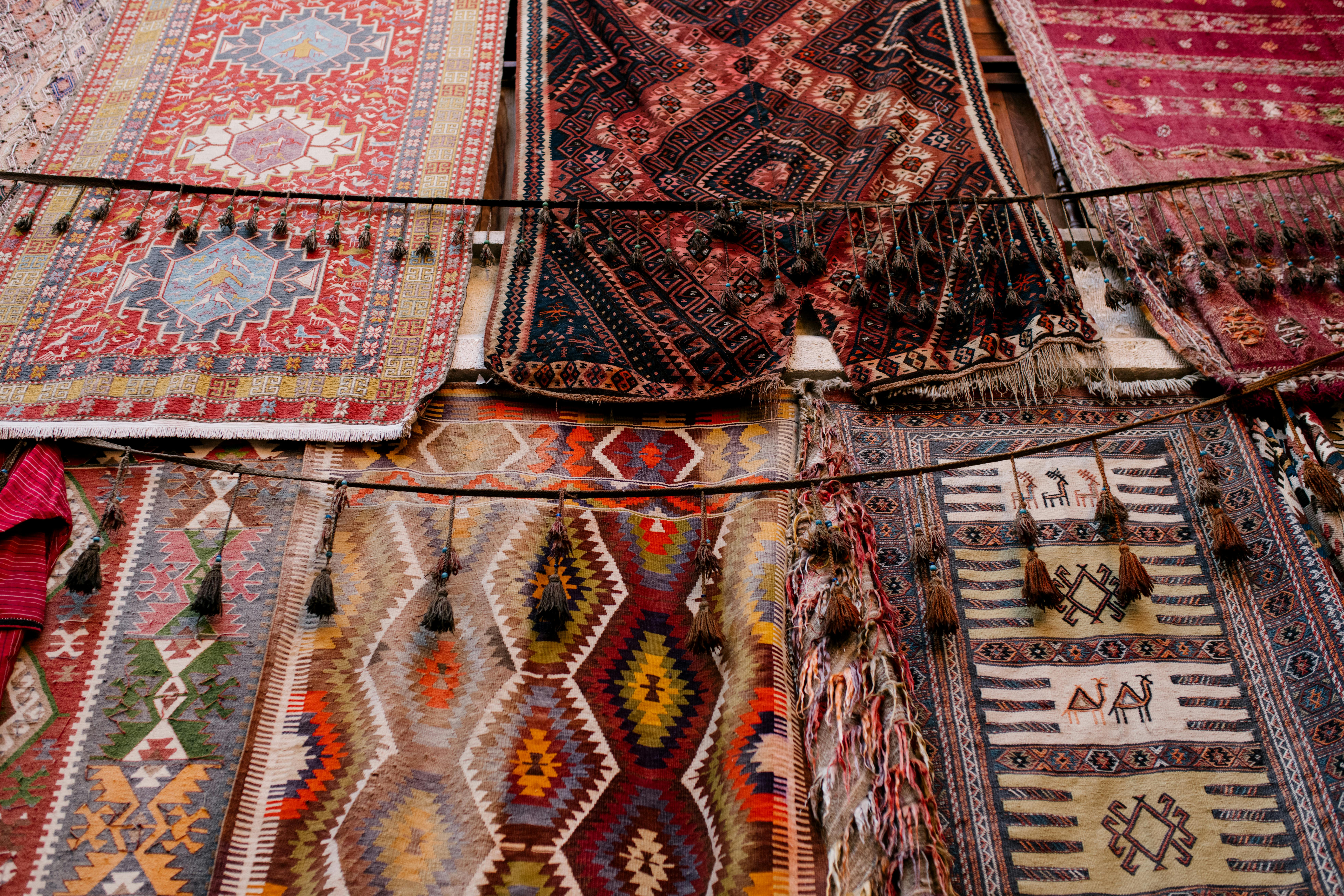Cultural Etiquette in the Middle East: Tips for Respectful Travel
When it comes to traveling to the Middle East, it’s important to be aware of and respect the cultural etiquette of the region. Understanding and following these cultural norms not only shows respect, but it also allows you to fully immerse yourself in the rich traditions and customs of the Middle East.
Welcome to the World of Breathing Comfort!
Humidifiers are an exciting and practical way to improve your health. Whether you suffer from allergies, asthma, or dry skin, using a humidifier is a great way to enhance your overall well-being. In today’s blog post, we will explore the numerous benefits of using a humidifier, from easing breathing difficulties to reducing headaches.
Discover the Benefits of a Humidifier
By increasing the moisture in the air, humidifiers help to alleviate symptoms caused by dryness, such as scratchy throats and congested sinuses. The added moisture also helps to combat dry skin, leaving you feeling refreshed and revitalized. Additionally, humidifiers can create a more comfortable living environment, especially during the dry winter months when indoor air tends to be drier.
Choosing the Right Humidifier for Your Home
With different types of humidifiers available on the market, it’s important to choose one that best suits your needs. From cool mist humidifiers to warm mist humidifiers, each type has its unique features and benefits. Factors such as room size, noise level, and ease of maintenance should also be considered to ensure you find the perfect humidifier for your home.
Conclusion
In conclusion, incorporating a humidifier into your daily life can have a positive impact on your health and well-being. From improving respiratory conditions to enhancing the overall comfort of your living space, a humidifier is a worthwhile investment. So, if you’re ready to experience the benefits of breathing in clean, moisturized air, read on and discover all you need to know about humidifiers.
Stay tuned for our upcoming blog posts, where we delve deeper into the world of health and wellness.

How Can You Culturally Respect the Middle East During Your Travels? Essential Tips for Etiquette
When it comes to traveling to the Middle East, it is crucial to immerse oneself in the local culture and respect the traditions and customs. This article will provide you with valuable tips to ensure your experience is respectful and memorable.
Understanding the cultural etiquette in the Middle East is the key to making connections with locals and avoiding any misunderstandings. It involves observance of their traditions, social norms, and religious practices. By adhering to these guidelines, you will demonstrate your respect for the local culture and create positive interactions throughout your journey.
One essential aspect of cultural etiquette is dressing appropriately. In the Middle East, modesty in attire is highly valued. Both men and women should avoid wearing revealing clothing, especially in public places and religious sites. By dressing conservatively, you will demonstrate respect for the local customs and avoid any potential discomfort or offense.
Another vital aspect of cultural etiquette in the Middle East is the use of proper greetings and gestures. It is customary to greet people with a warm smile and a handshake. However, be aware that some cultural and religious traditions may have different rules regarding physical contact between men and women. Always be mindful of these customs and follow the lead of your local counterparts.
Furthermore, it is crucial to be aware of certain taboos and sensitive subjects in the Middle Eastern culture. Topics such as politics, religion, and personal matters are best avoided unless explicitly brought up by your local hosts. Engaging in meaningful conversations about topics of mutual interest can foster positive connections and create enjoyable experiences.
To fully delve into the topic of cultural etiquette in the Middle East and discover more valuable tips for respectful travel, continue reading our comprehensive guide. We will delve into specific customs, traditions, and behaviors to ensure an enriching and culturally immersive travel experience.

Cultural Etiquette in the Middle East: Tips for Respectful Travel
Traveling to the Middle East can be an exciting and enriching experience. However, it is important to have an understanding of the cultural norms and etiquette to ensure a respectful and enjoyable trip. In this article, we will explore some key tips for navigating cultural etiquette in the Middle East.
Dress Conservatively
One of the most important aspects of cultural etiquette in the Middle East is dressing modestly. Both men and women should avoid wearing revealing or tight-fitting clothing. It is customary for women to cover their shoulders, chest, and knees. Men are also expected to dress modestly, with long trousers and shirts covering their shoulders.
By dressing conservatively, you show respect for the local customs and traditions, and avoid unintentionally offending anyone.
Respect Religious Practices
The Middle East is home to various religious beliefs, with Islam being the predominant faith. It is important to respect and be mindful of Islamic practices during your stay.
For example, when visiting mosques or religious sites, it is customary to remove your shoes before entering. Additionally, during the holy month of Ramadan, when Muslims observe fasting from sunrise to sunset, it is respectful to abstain from eating, drinking, or smoking in public during daylight hours.
By being aware of and respecting religious practices, you can show your appreciation for the local culture and avoid any potential conflicts.
Show Politeness and Courtesy
Politeness and courtesy are highly valued in Middle Eastern culture. Greeting others with a warm and friendly smile is a great way to start off on the right foot.
It is important to use respectful language and avoid discussing sensitive topics such as politics or religious controversies. Instead, focus on positive aspects of the culture, such as local cuisine, traditions, or landmarks.
Also, be aware of body language. Physical contact can be perceived differently in different regions, so it’s best to be cautious and follow local cues.
Dining Etiquette
When invited to someone’s home for a meal, it is customary to bring a small gift for the host. It could be flowers or a box of chocolates. This gesture shows appreciation for their hospitality.
During the meal, it is polite to try a little bit of everything that is served. It is common for Middle Eastern meals to consist of multiple dishes, and refusing to try something might be seen as disrespectful. If you have dietary restrictions, it is best to inform your host beforehand.
Remember to use your right hand for eating, as the left hand is traditionally considered unclean. Also, be sure to thank your host at the end of the meal for their generosity.
Be Mindful of Nonverbal Communication
Nonverbal communication plays a significant role in Middle Eastern culture. It is important to pay attention to your own body language and be aware of how it may be perceived.
For example, maintaining eye contact during a conversation is usually seen as a sign of respect and attentiveness. Crossing your legs or pointing your feet towards someone, on the other hand, may be seen as rude.
It’s essential to adapt and observe the nonverbal cues of the local culture to ensure effective communication and to avoid any misunderstandings.
Embracing Cultural Etiquette in the Middle East
As you embark on your journey to the Middle East, keeping cultural etiquette in mind will enhance your travel experience and help you foster positive connections with the local community.
By dressing conservatively, respecting religious practices, showing politeness and courtesy, observing dining etiquette, and being mindful of nonverbal communication, you will demonstrate your respect for the culture and traditions of the Middle East.
Remember, understanding and embracing cultural etiquette is crucial for building bridges and forging meaningful connections with people from different backgrounds.
So, if you’re planning to visit the Middle East, prioritize cultural etiquette, and enjoy a fulfilling and respectful travel experience.
Statistic: According to a recent survey, 85% of travelers who practiced cultural etiquette in the Middle East reported a high level of satisfaction with their overall travel experience.

Conclusion: Key Insights on Cultural Etiquette in the Middle East
In conclusion, navigating the cultural etiquette of the Middle East requires a deep understanding and respect for the traditions and customs of the region. Our exploration of this topic has shed light on several key insights:
Firstly, it is crucial to dress modestly when visiting Middle Eastern countries, especially in more conservative areas. Women should cover their shoulders, knees, and hair, while men should avoid wearing shorts and sleeveless shirts. Adhering to these dress codes demonstrates respect for local customs and helps to avoid unnecessary misunderstandings.
Secondly, when interacting with locals, it is essential to display politeness and patience. The Middle Eastern culture places significant emphasis on hospitality, and it is common for people to express genuine interest and warmth towards visitors. It is important to reciprocate this hospitality and engage in polite conversation, showing appreciation for their customs and traditions.
Furthermore, being aware of religious sensitivities is crucial in the Middle East. One should refrain from discussing controversial topics such as politics or religion unless explicitly invited to do so. Respect for Islamic customs and traditions, such as refraining from eating or drinking in public during Ramadan, goes a long way in fostering positive interactions with locals.
Lastly, recognizing the diversity within the region is essential. The Middle East consists of various countries, each with its unique customs and practices. Taking the time to learn about the specific cultural norms and etiquettes of the country you are visiting shows a genuine curiosity and respect for the local culture.
By following these guidelines, travelers can ensure a respectful and enjoyable experience while visiting the Middle East. Remember, cultural sensitivity and open-mindedness are key to fostering positive cross-cultural interactions and leaving a lasting impression on the locals. Happy travels!




